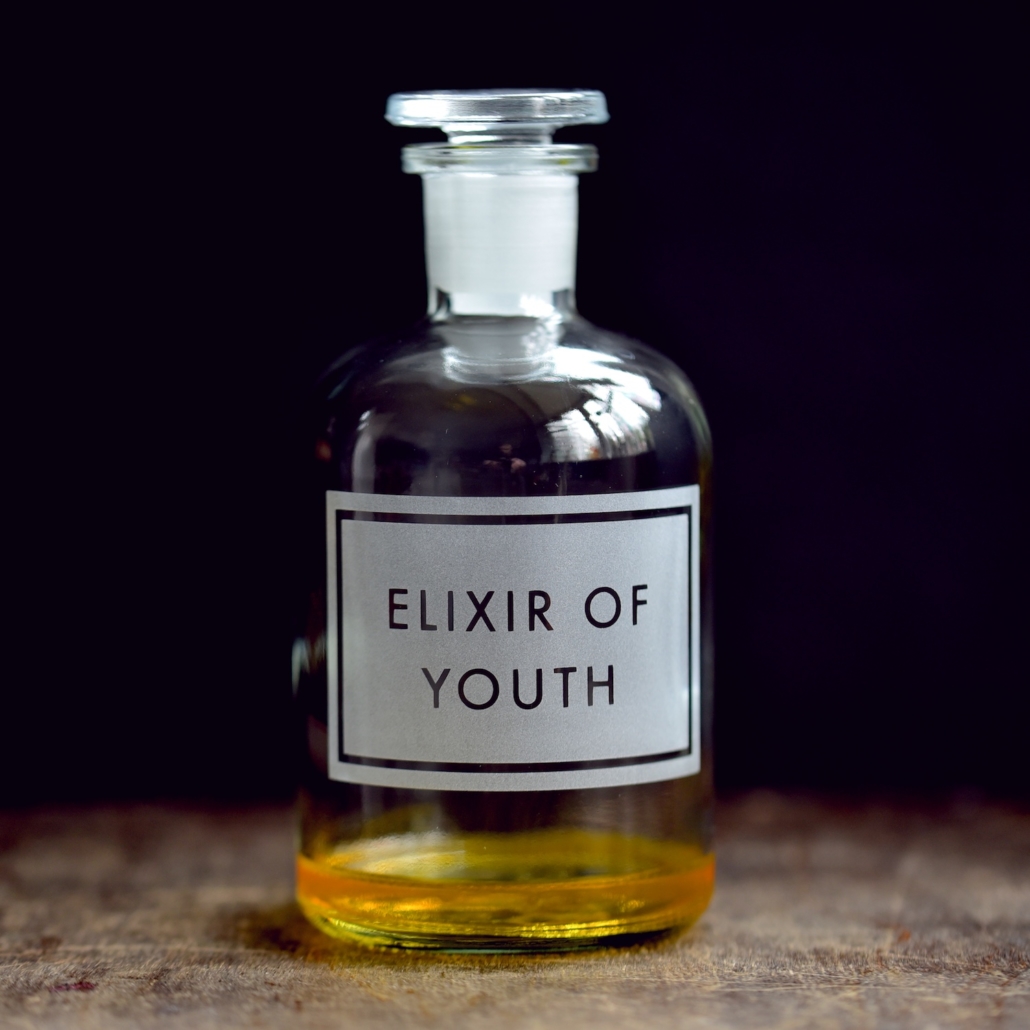Liquid Collagen – Youth in a Glass?
Why do we want it?
Research shows that liquid collagen has impressive benefits for our hair, skin and nails. That’s all we needed to hear for “us ladies” to be focused on the “skin” part of that benefit…mostly. Who doesn’t want to support their facial skin from the inside out and have the added benefit of great hair, nails, and joint protection? If you don’t need to “read” about it, go to the bottom of this post and “act” on it.

What is liquid collagen anyway?
It is a protein; protein peptides to be exact, suspended in liquid. Collagen is what gives our skin its elasticity and support structure, and provides joints, tendons, ligaments with that same support.
These collagen proteins are hydrolyzed and broken down into amino acids, or peptides, so the body can absorb them better. Hydrolyzed proteins are the way to go for maximum absorbability. Since collagen is really just amino acids, find one that has a full profile of amino acids. Moreover, collagen from grass fed cows has proven to have a fuller amino acid profile from those that are not grass fed, and bovine collagen is type I collagen.
But liquid collagen is not just hype geared towards women wanting to appear more youthful; there is science behind it. Thousands of clinical studies show positive results from supplementing with collagen. Important to note, our natural collagen production slows down after the age of 30, and slowly plummets. Supplementation becomes necessary to maintain collagen levels and achieve a more youthful appearance. No, we don’t have to, we choose to. And it’s really not something you can get too much of. It is a protein, and you can certainly get too much protein, but a collagen supplement is not going to be an overdose for you unless you use it unnaturally; like the equivalent of eating 20 steaks at one time or consuming an entire cannister of protein powder at one time. Who does that? So, safety is not an issue.
How we use liquid collagen
Firstly, we double up on our collagen supplementation for the first 30 days so that we can get our body back to a baseline of collagen production, for a good start. By taking 2 tablespoons of liquid collagen per day, after the first 30 days, you are giving your body what it needs to support your skin, hair and nails, and do a repair job for us older folks. Liquid collagen is an easy way to get your collagen in, readily bio-available, “down it and done”, and not have to worry about finding some beverage to put a powder in; hope it dissolves, and hope it tastes good, and drink it all. This is only one of the reasons that liquid trumps powder. Oh, and we also add hyaluronic acid for skin plumpness from the inside out. But that’s for another discussion. Good stuff.
Bottom line: Because it’s a protein, collagen supports hair and nails as well, but sagging and lack of support is most evident in the face, so we pay more attention to that. Type I liquid collagen is best for skin, hair and nails. If you include several types of collagen, you are essentially watering down your focus. For vanity reasons, we’re putting our best face forward 🙂
Ready to order?
GO HERE, within this website, See GLOW Liquid Collagen. This is the one we use to nudge time backwards, and our age rhymes with “tricks zero” and then some.
You will see an Ordering Tutorial, and Before & After Section.
We’re here to help. Use the Contact page to tell us how we can help and we’ll get in touch within 24 hours. And if you want to order now and contact us later…. Order here: www.tranont.com/minebydesign.
Becky and Patti
Health Becomes You, from the Inside Out.



 Omega 3 fish oil contains 2 fatty acids that are crucial to our health: DHA and EPA fatty acids. And, if Omega 3 fish oil benefits are so important, then why isn’t anyone paying attention? There’s also the problem of consuming far too many Omega 6 oils and upsetting the balance of our nutritional needs.
Omega 3 fish oil contains 2 fatty acids that are crucial to our health: DHA and EPA fatty acids. And, if Omega 3 fish oil benefits are so important, then why isn’t anyone paying attention? There’s also the problem of consuming far too many Omega 6 oils and upsetting the balance of our nutritional needs.